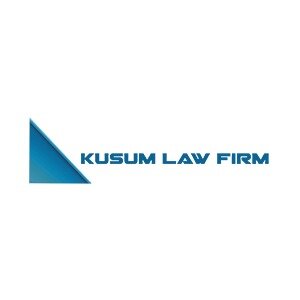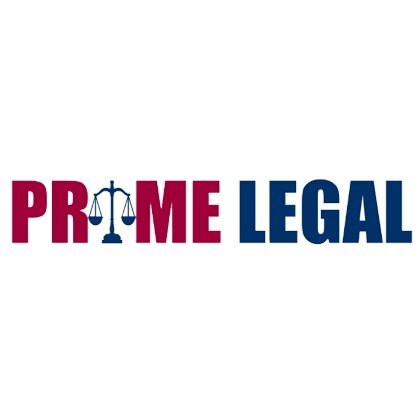Best Housing, Construction & Development Lawyers in Nepal
Share your needs with us, get contacted by law firms.
Free. Takes 2 min.
Free Guide to Hiring a Real Estate Lawyer
Or refine your search by selecting a city:
List of the best lawyers in Nepal
About Housing, Construction & Development Law in Nepal
Housing, Construction, and Development Law in Nepal encompasses a wide array of legal frameworks that govern the development, construction, and sale of residential and commercial properties. With rapid urbanization and increasing demand for infrastructure, understanding these laws is crucial for developers, buyers, and construction firms. The legal landscape here includes land acquisition, zoning laws, property rights, construction standards, and environmental regulations. The government of Nepal, through various ministries and local bodies, regulates and oversees all developments to ensure compliance with national and international standards.
Why You May Need a Lawyer
Engaging a lawyer experienced in Housing, Construction & Development law might be essential for several reasons:
- Disputes related to land ownership or property boundaries.
- Navigating complex zoning laws and construction permits.
- Ensuring compliance with environmental and safety regulations.
- Contractual issues between developers, contractors, and clients.
- Resolving disagreements related to quality and timeline of construction projects.
- Dealing with tax implications and financial transactions in property deals.
Local Laws Overview
The key aspects of local laws relevant to Housing, Construction & Development in Nepal include:
- Land Acquisition Act: Governs how land is acquired for public purposes, including compensation provided to original owners.
- Building Act: Sets the standards for construction, covering safety, materials, and building codes.
- Urban Planning Act: Regulates zoning, land use, and urban development, including provisions for infrastructure development.
- Environment Protection Act: Ensures that development projects comply with environmental standards and assessments.
- Property Rights: Defines ownership rights and transactions related to land and buildings, including transfer processes.
- Contract Act: Governs the creation and enforcement of contracts related to construction and real estate transactions.
Frequently Asked Questions
What should I know before purchasing land in Nepal?
Before purchasing land in Nepal, verify the ownership details, check zoning regulations, ensure there are no legal disputes, and obtain necessary governmental approvals.
How can I resolve a dispute over property boundaries?
To resolve a boundary dispute, it is advisable to consult land records, engage a surveyor for accurate measurements, and seek legal assistance if necessary.
What permits are necessary for constructing a new building?
Permits typically required include a building permit from the local municipality, environmental clearances, and adherence to zoning laws and building codes.
Are there specific regulations for earthquake-resistant construction?
Yes, Nepal has specific building codes and regulations that mandate standards for earthquake-resistant construction, especially in urban areas.
Can foreigners purchase property in Nepal?
Foreign nationals face restrictions when purchasing property in Nepal. It's advisable to consult legal experts to understand current regulations and exceptions.
What are common reasons for construction contract disputes?
Contract disputes often arise from delays, quality issues, payment disagreements, and deviation from agreed specifications or standards.
How do zoning laws affect property development?
Zoning laws determine the type of structures allowed, such as residential, commercial, or industrial, and dictate the density and design of developments.
What environmental regulations might impact my construction project?
Projects must comply with waste management guidelines, pollution control measures, and impact assessments as per the Environment Protection Act.
How is land acquired for public purposes in Nepal?
Under the Land Acquisition Act, land can be acquired for public purposes with fair compensation. The process involves notifications, surveys, and negotiation.
What legal steps should I take if a contractor defaults on a project?
If a contractor defaults, review the contract for penalty clauses, attempt negotiation or mediation, and consider legal action for breach of contract if necessary.
Additional Resources
For further assistance, you may refer to these resources and organizations:
- Ministry of Land Management, Cooperatives and Poverty Alleviation: Governs land related policies and regulations.
- Department of Urban Development and Building Construction: Provides guidelines and permits related to construction activities.
- Real Estate Agents' Association Nepal (REAN): Offers insights and assistance on real estate transactions and issues.
- Mediation and Arbitration Centers: Facilitate resolution of disputes related to construction and development law.
Next Steps
If you require legal assistance in Housing, Construction & Development, consider the following steps:
- Identify the specific legal issue you are facing to ensure you contact the appropriate expert.
- Contact a qualified lawyer specializing in Housing, Construction & Development law for a consultation.
- Prepare all relevant documents and information related to your issue before meeting with your lawyer.
- Discuss the possibility of alternative dispute resolution methods like mediation or arbitration if applicable.
- Stay informed about your rights and responsibilities under Nepalese law to make well-informed decisions.
Lawzana helps you find the best lawyers and law firms in Nepal through a curated and pre-screened list of qualified legal professionals. Our platform offers rankings and detailed profiles of attorneys and law firms, allowing you to compare based on practice areas, including Housing, Construction & Development, experience, and client feedback.
Each profile includes a description of the firm's areas of practice, client reviews, team members and partners, year of establishment, spoken languages, office locations, contact information, social media presence, and any published articles or resources. Most firms on our platform speak English and are experienced in both local and international legal matters.
Get a quote from top-rated law firms in Nepal — quickly, securely, and without unnecessary hassle.
Disclaimer:
The information provided on this page is for general informational purposes only and does not constitute legal advice. While we strive to ensure the accuracy and relevance of the content, legal information may change over time, and interpretations of the law can vary. You should always consult with a qualified legal professional for advice specific to your situation.
We disclaim all liability for actions taken or not taken based on the content of this page. If you believe any information is incorrect or outdated, please contact us, and we will review and update it where appropriate.
Browse housing, construction & development law firms by city in Nepal
Refine your search by selecting a city.

















